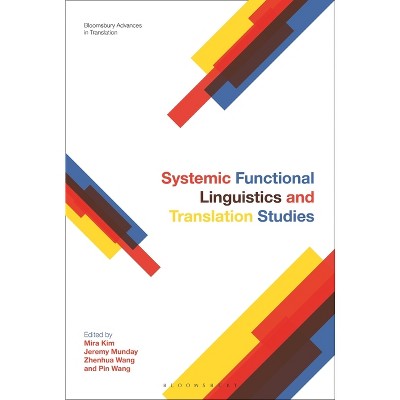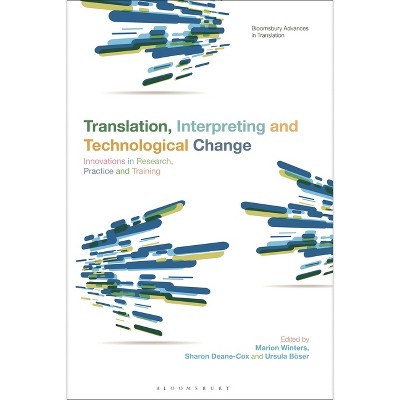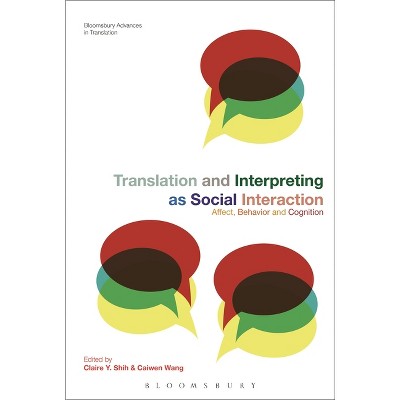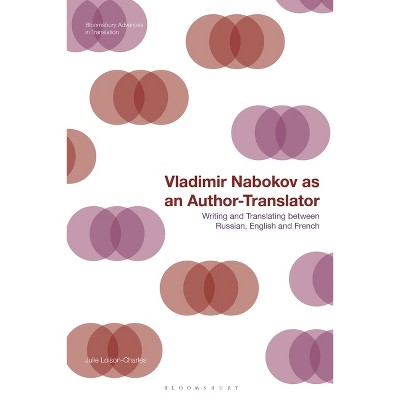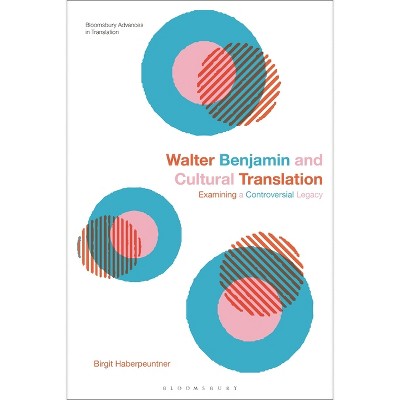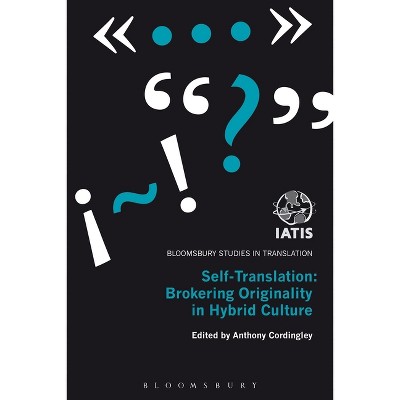Positionalities of Translation Studies - (Bloomsbury Advances in Translation) (Hardcover)

About this item
Highlights
- This volume explores historical, cultural, linguistic, and anthropocentric influences on Translation Studies (TS).
- About the Author: Garda Elsherif is a Research Associate in the Department of Translation Studies, Linguistics and Cultural Studies at the University of Mainz, Germany.
- 272 Pages
- Language + Art + Disciplines, Translating & Interpreting
- Series Name: Bloomsbury Advances in Translation
Description
About the Book
Explores historical, cultural, linguistic, technological and institutional influences on Translation Studies.Book Synopsis
This volume explores historical, cultural, linguistic, and anthropocentric influences on Translation Studies (TS).
It brings together nuanced, individual, self-reflexive case studies and juxtaposes them in order to provoke discussion on the role of contemporary researchers in the discipline of TS. As well as reflecting on the historical and geographical dimensions of the situatedness of TS, the book builds on existing reflections on the local, political and linguistic positions of TS and examines the practical and methodological consequences of these discussions. By considering insights and perspectives from various disciplines, the contributors refer to the current state of the art in TS and reconstruct the discussions held on Eurocentrism, anthropocentrism and the historicity of TS that have been discussed in isolation so far. This volume maps potential relations between them and introduces an analytical concept of positionality that highlights commonalities among various discourses. As well as theoretical and historical analysis, the contributors ask how to methodologically deal with this inevitable positioning of research in contemporary research practice. The contributions cover various aspects of positionalities and its influences on translation research, including gender, anthropocentrism, experiential knowledge and geopolitics. They also explore various histories of translation studies, in different temporal, spatial and linguistic settings, such as China/Chinese, Iran/Persian, the Netherlands/English, Ukraine/Ukrainian/Russian and France/French, thereby highlighting that TS as a discipline is not a monolith but consists of various histories interconnected with each other.Review Quotes
Positionalities of Translation Studiesintroduces a critical and multifarious perspective to the question of individual and disciplinary self-reflexivity and the situated nature of translation research. By engaging leading scholars and fresh approaches from traditions beyond the Anglophone sphere in a strong dialogue, the volume brings conceptual depth to translation research. The concluding conversation brings forth essential and topical issues facing translation research today, such as transdisciplinarity, ethical repercussions of anthropocentrism and the challenges of non-human communication or research as a tool for decolonization.
Sehnaz Tahir-Gurcaglar, Professor of Translation Studies, Bogazici University, Turkey and York University, Canada
"This innovative work maps the two levels at which the linguistic, spatial, temporal, and social conditions of translation studies operate: the individual researcher and the discipline as a whole. It makes an outstanding contribution to the self-reflexivity of translation studies, a crucial and even indispensable perspective for a field undergoing today a set of profound transformations." --Lieven D'hulst, Professor Emeritus, KU Leuven, Belgium
"As Translation Studies broadens its reach, the positionality and situatedness of authors, translators, publishers, viewers and readers as well as scholars and critics becomes ever more important. This volume emphasizes and explores this theoretical premise. Its contribution to the field is invaluable, and interesting to read." --Luise von Flotow, Professor Emerita, University of Ottawa, Canada "Positionalities of Translation Studies introduces a critical and multifarious perspective to the question of individual and disciplinary self-reflexivity and the situated nature of translation research. By engaging leading scholars and fresh approaches from traditions beyond the Anglophone sphere in a strong dialogue, the volume brings conceptual depth to translation research. The concluding conversation brings forth essential and topical issues facing translation research today, such as transdisciplinarity, ethical repercussions of anthropocentrism and the challenges of non-human communication or research as a tool for decolonization." --Sehnaz Tahir-Gurcaglar, Professor of Translation Studies, Bogazici University, Turkey and York University, CanadaAs Translation Studies broadens its reach, the positionality and situatedness of authors, translators, publishers, viewers and readers as well as scholars and critics becomes ever more important. This volume emphasizes and explores this theoretical premise. Its contribution to the field is invaluable, and interesting to read.
Luise von Flotow, Professor Emerita, University of Ottawa, Canada
This innovative work maps the two levels at which the linguistic, spatial, temporal, and social conditions of translation studies operate: the individual researcher and the discipline as a whole. It makes an outstanding contribution to the self-reflexivity of translation studies, a crucial and even indispensable perspective for a field undergoing today a set of profound transformations.
Lieven D'hulst, Professor Emeritus, KU Leuven, Belgium
About the Author
Garda Elsherif is a Research Associate in the Department of Translation Studies, Linguistics and Cultural Studies at the University of Mainz, Germany.
Joanna Sobesto is a Research Associate in the Faculty of Polish in the Centre for Translation Studies at Jagiellonian University, Poland.





